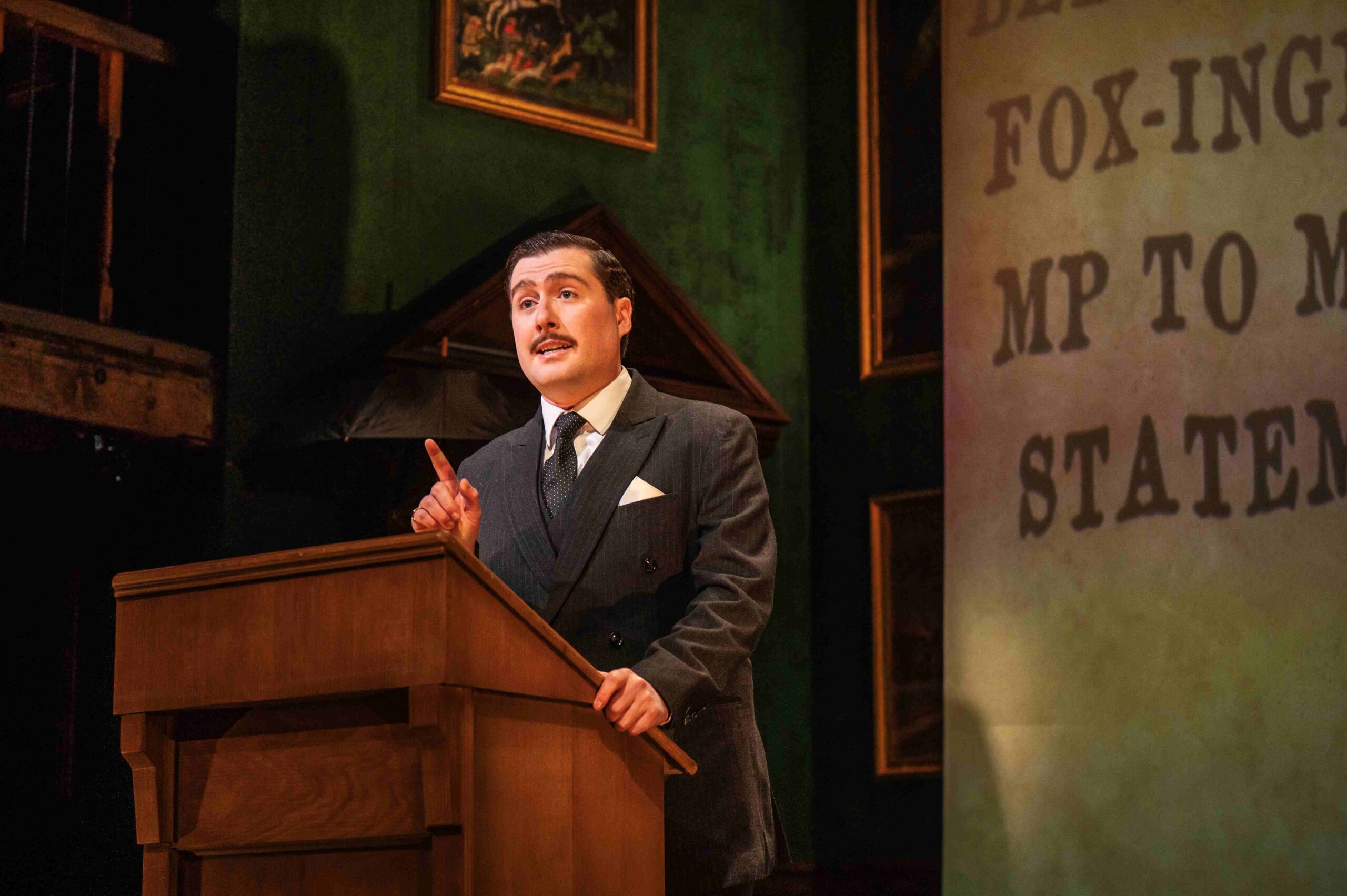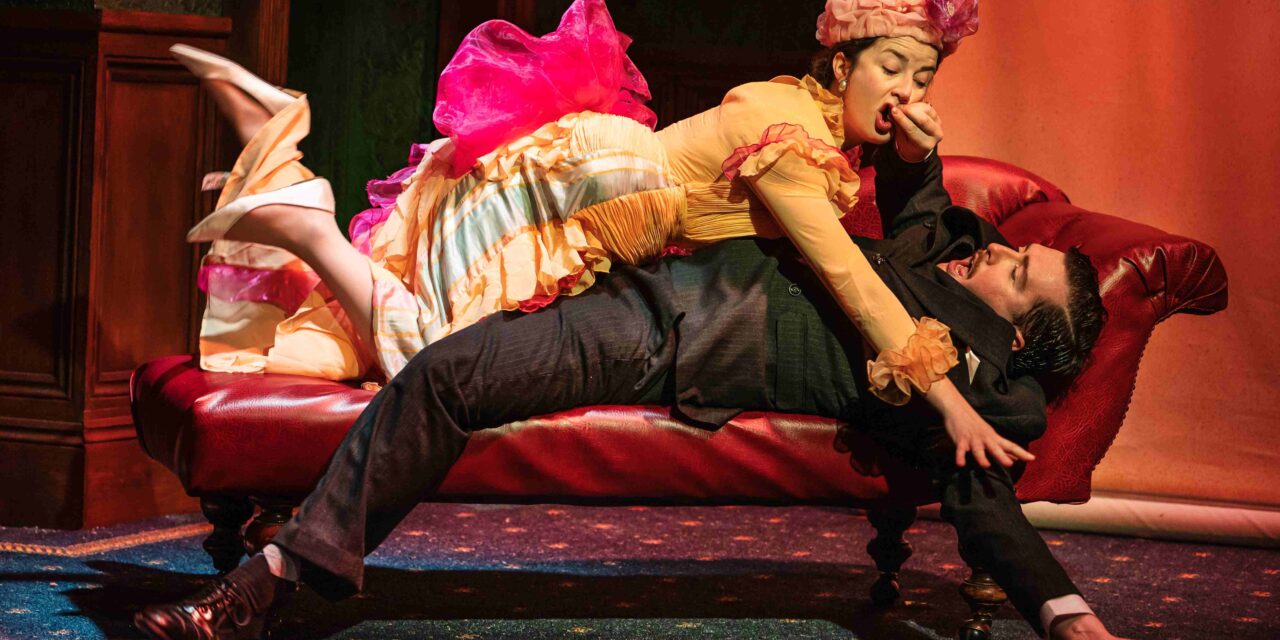
7 February – 22 March
Class systems, whether based on money, birth, education or some other convenient rule are universally condemned. In England where birth remains stubbornly at the top of the list of determinants when the cards of life’s opportunities are dealt, the system is roundly jibed by what are condescendingly termed as the ‘lower orders’. Along with chatter about the weather it’s a perennial national pastime. When the upper reaches of the English are irredeemably selfish and self-serving it is almost one’s duty to call them out for the blight they are and expose the system for the irremediable canker it is. Sadly it has not quite become the joke it ought to be, as the list of U.K. prime ministers will testify.
What fun then to roll up all our prejudices about toffs into one relentlessly obnoxious bounder, a charmless egomaniac with no redeeming features. A Flashheart without the sex appeal or comic bravado. Such is Edward Fox-Ingleby (James Mack). He is the sort of privileged, entitled snob that any self-respecting organisation would blackball for fear of public opprobrium – unless of course all other members subscribed to the same lack of decency and disdain for anything or anyone considered, ‘not one of us’.
Being an ‘autobiography’ the play has the form of, ‘this happened and then this happened’, without any kind of narrative thread driving it forward. Of course the notion is that the Cad progresses through life buoyed up by the privilege of birth, but when this notion is delivered broadside after broadside it loses impact, intrigue and comic effect. There are plenty of conspiratorial asides to the audience – a nod to the idea that this is a warts and all, self-revelatory autobiography, but the Cad’s behaviour is so relentlessly obnoxious one occasionally feels in need of the breathable air of subtlety.
Ian Hislop and Nick Newman have based their play on the novel by A.G. Macdonell. Where one hoped for some rapier-like satire from Messrs Hislop and Newman we find ourselves in danger of being bludgeoned by something thuddy and imprecise. The delivery of the play is largely a monologue delivered by Mr Mack who gives both barrels from start to finish in a bravura performance of unrelenting energy and self-belief. However the most successful parts of the play, which is set during the First World War, come in the second act when there is more interaction with the other characters as his philandering and pursuit of a political career become the focus.
We live during times in which there are no shortage of cads, bounders and assorted undesirables, but I wonder if one such as the patently odious Fox-Ingleby would even get out of the starting blocks in the litigious atmosphere which has taken the place of the dreaded ‘black ball’. The writers would undoubtedly tell us to look around!
★★★☆☆ Graham Wyles 12 February 2025
photographers credit @ Matt Crockett


